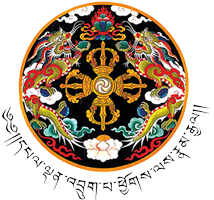Livestock Sector
The Livestock Sector of Bumthang Dzongkhag is dedicated to enhancing food and nutrition security and improving rural livelihoods through the promotion of livestock farming. It aims to improve the effective and efficient delivery of livestock services, generate appropriate technologies to enhance livestock production, and encourage youth and public sector investment in livestock enterprises.
Dzongkhag Livestock Sector
Livestock plays an integral role in the lives of Bhutanese farmers and is no exception for the people of the Dzongkhag. In fact, livestock farming is an integral component of a deeply rooted farming system that has been practiced since time immemorial in all four Gewogs of the Dzongkhag. Livestock development in the country started in 1961 with the inception of the 1st Five Year Plan Development Program. In order to achieve the overall national objective of higher living standards for the Bhutanese population, and the people of Bumthang in particular, rapid gains and high productivity in livestock production are essential. This can be accelerated with a good service organization structure that can deliver effective services to the people.
The following are the set-up of livestock service delivery points in the Dzongkhag: Dzongkhag Livestock Sector, Dzongkhag Veterinary Hospital, RNR-Extension Centre, Thangbi, Tang, Chhumig, and Ura.
Vision
“To attain food and slef-sufficiency in livestock products through enhanced rural livelihoods to alleviate poverty.”
Mission
To increase livestock productivity by ensuring prompt delivery of appropriate technologies and services through commodity-based approach.
Mandates
Develop sound policies and legal framework, strategies, and guidelines to ensure efficient delivery of livestock services.
- Mobilize resources and promote livestock development.
- Plan, coordinate, monitor, and evaluate the implementation of overall livestock development programs.
- Ensure the supply of quality livestock inputs.
- Ensure sustainable utilization and management of livestock resources.
- Promote livestock enterprise development.
- Coordinate and implement a highland development program.
- Build the technical capacity of livestock farmers in livestock production.
- Promote climate-resilient livestock production to mitigate and adapt to Climate Change.
- Promote market access and marketing of livestock products.
- Facilitate the formation of Farmer Groups, Cooperatives, and Federation.
- Safeguard the health and welfare of animals through the provision of quality animal health services.
- Promote one health approach to safeguard public health by prevention and control of zoonotic diseases.
- Liaise with national stakeholders in areas of livestock development.
Objectives
The objectives of Department of Livestock are as follows:
- To enhance food and nutrition security and rural livelihood through the promotion of livestock farming.
- To enhance the effective and efficient delivery of livestock services.
- To generate appropriate technologies for the enhancement of livestock production.
- To encourage youths and public sector investment in livestock enterprises.
Checklist for Environment Clearance (EC) to establish livestock farm/ enterprises
If proposed on Government/ Lease land
- Detailed Proposal – Forwarded by DLO/ LPO or gewog staff
- Duly filled Initial Environment Examination (IEE) form
- Community clearance with gewog staff as the witness to the clearance.
- Forest clearance (if on SRF)
- Money receipt (Environment Fee Nu. 2000 + Application processing Fee Nu. 500)
- Compliance/ feasibility Report from Dzongkhag Livestock Officer (DLO)/ LPO
If proposed in Private land
- Detailed Proposal – Forwarded by DLO/ LPO or gewog staff
- Duly filled Initial Environment Examination (IEE) form
- Community clearance
- Compliance/ feasibility Report from DLO and Dzongkhag Environment officer
- Money receipt (Nu. 2500)
If there is ancillary activity along with the farm establishment
- Transmission line:
If the transmission line is more than 63 Kv, the proponent needs to pay separate fees of Nu. 2/ meter of the transmission line pulled.
- Access road:
If the access road is required, then the proponent needs to pay additional fees worth Nu. 2 per meter of access road required.
EC Renewal
- Forwarding letter (addressed to HOD) requesting for renewal
- Previous EC copy
- Compliance Report either from DLO or Dzo. Environ. Officer
- Renewal fees receipt-Nu.500 paid to Dzongkhag as revenue receipt
- EC fees-20% of the initial fees (2000) = 0.2*2000 = 400 as revenue receipt (total Nu. 900)
If Department of Livestock is intending to establish farms, DoL must seek all clearances from NEC.
The clearance can be given valid for upto (Max) 5 years but can be reduced upon discretion and type of enterprise proposed.
LIVESTOCK PROFILE
Downloads
Nothing to download in this sector.
Staff








Contact us
-
- Dzongkhag Administration Bumthang, Bhutan
- PABX: 03-631200
- P.O box no. 32001
- Dzongdag-Ext 132 (O) Fax # 03-631806
- Dzongrab-Ext 119 (O) Fax # 03-631461
Quick Links
Useful Links
- Announcements
- Grievance Redressal
- Performance Agreement
- Service Delivery Standard
- ICT Request Form
